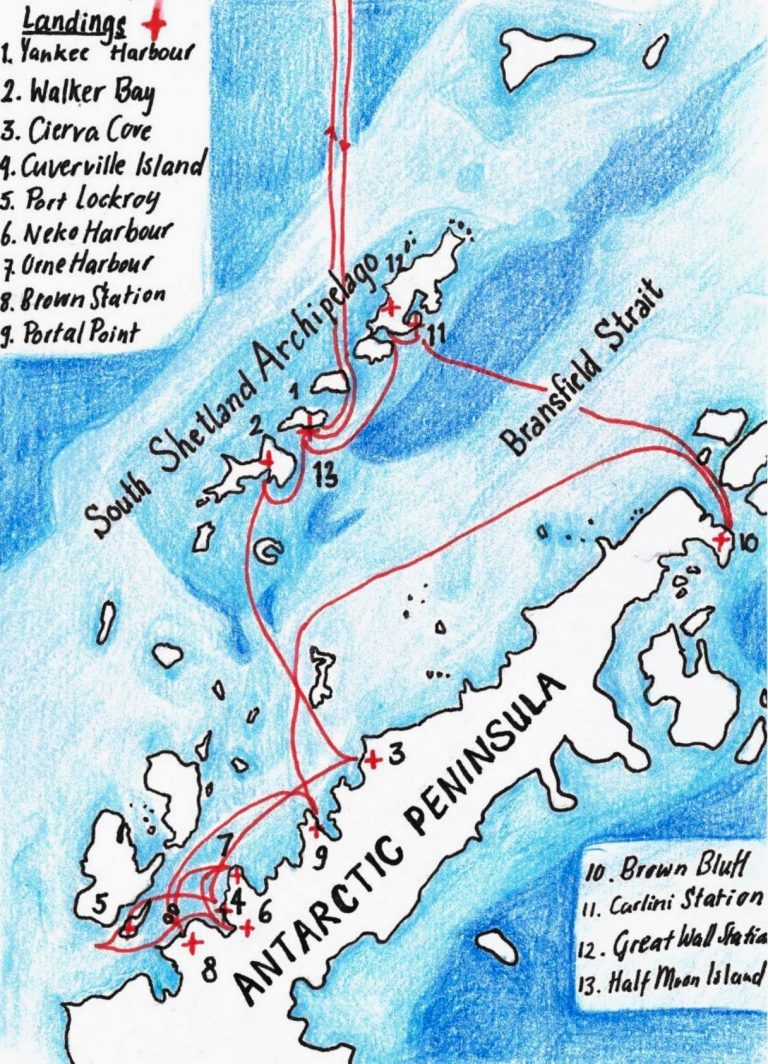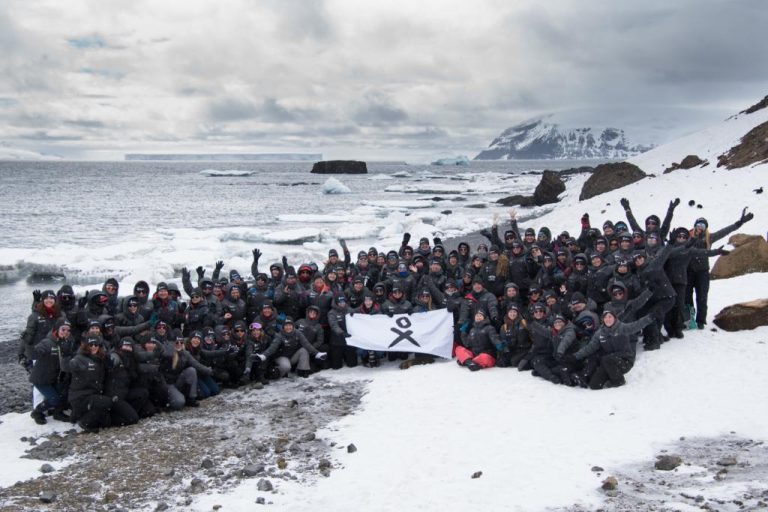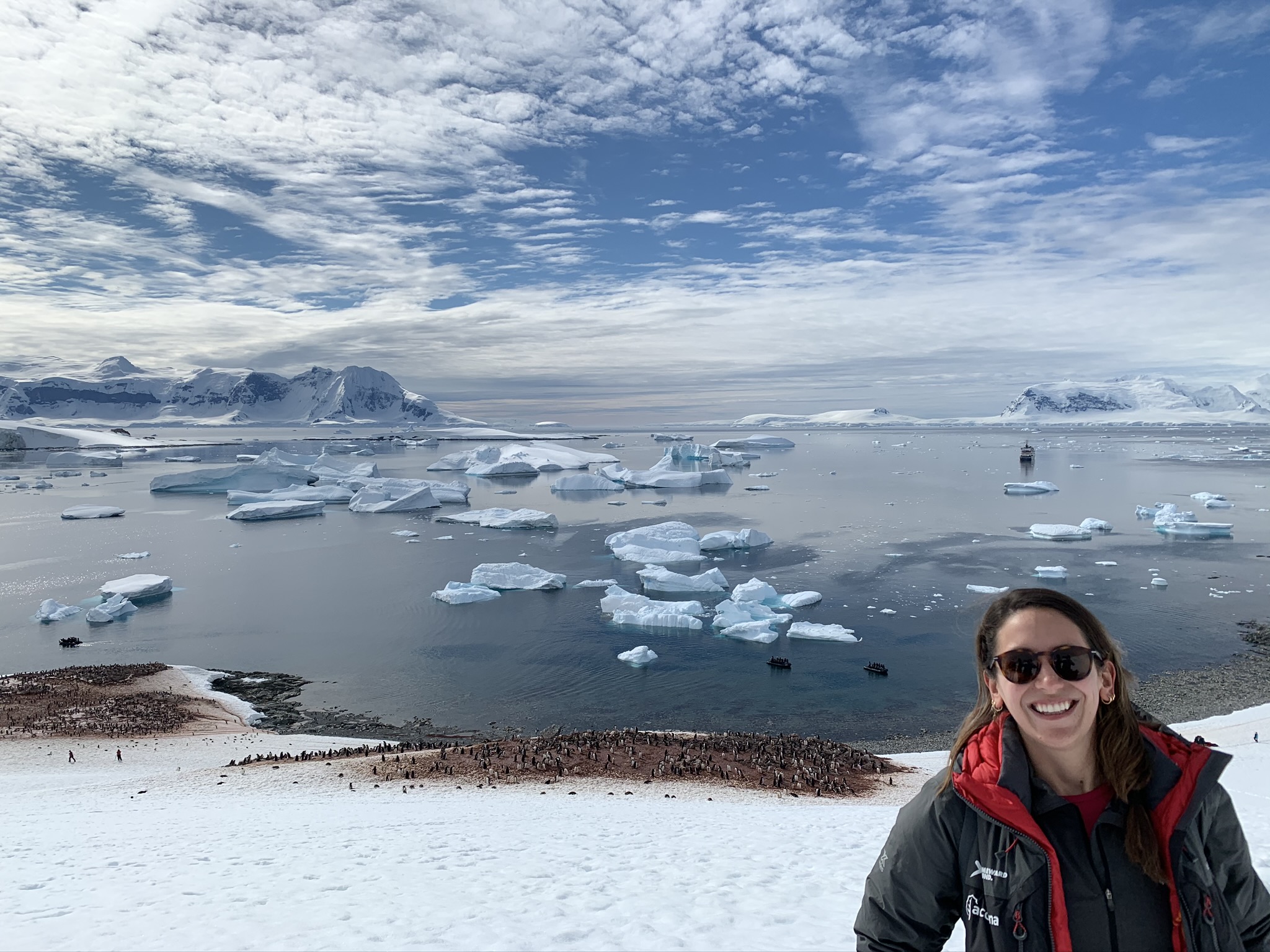Last December, a ship with 95 women sailed to Antarctica. PhD student Andrea Mangel Raventos was one of them. What were her experiences and what will she bring back to Delft?
Andrea Mangel Raventos on Cuverville Island, Antarctica. (Photo: Andrea Mangel Raventos)
The three-week trip to Antarctica was the last part of the Australian Homeward Bound initiative. The goal of this global leadership initiative for women in Science, Technology, Engineering, Maths and Medicine (STEMM) is to build a network of 1,000 women in 10 years.
Andrea Mangel Raventos (3mE) joined this Australian-based initiative with the support of Delft University Fund’s Marina van Damme Grant. The initiative was online, with monthly calls, for a full year preceding the departure. At the end of the year, the women met up in Ushuaia, the southernmost point of Argentina. From there they sailed to the Antarctic Peninsula, the area most impacted by climate change.


Why go all the way to Antarctica?
“Antarctica really teaches you the urgency of climate change. Also, being in a place that does not belong to anyone with an international group teaches you how to work together to protect it. The harsh weather conditions make collaboration in Antarctica crucial. At TU Delft we talk a lot about collaboration, but people don’t always share what they are working on. In Antarctica, if a science station runs out of food or fuel, countries that you would never expect to collaborate have too because you would otherwise not survive.”
What did you learn about climate change in Antarctica?
“We went to a couple of scientific stations and heard about how animals are shifting their eating and mating patterns, and how the sea ice is disappearing.’ She sighs. ‘I work with climate change every single day, and we are always talking about the ice sheets melting and all the effects this is going to have. But to actually see it happening touches you in a different way. It’s crazy to see the effects of our actions on the climate so clearly.”
What did the Homeward Bound initiative teach you?
“The initiative is very introspective. It is about your leadership skills. The world and everything else will just keep going without you – this is outside your control. The only thing you can control is your response to it.”


What was it like to be with 95 women on a ship?
She laughs. “That was the coolest part. Going from a male-centred environment at TU Delft to being with just women on a ship was inspirational. Women face similar problems everywhere. Women everywhere not only face issues in their workplace, but they also face societal pressures and constraints. They often feel that they are not good enough. They are always their own worst critic.”
What are you bringing back to Delft from Antarctica?
“I think we really have to talk more about the gender disparities at TU Delft. Not only at the student level, but mostly in terms of leadership positions. Most of the professors are men, and I do not believe that that is because of a lack of female candidates. This is a conversation we really have to start having. I think the hiring criteria have to be revised.”
- The Homeward Bound 4th cohort managed to offset all the emissions of their 95 flights to Argentina and all the fuel used on the ship.
CV Andrea Mangel Raventos (1987)
Andrea, born in Costa Rica, graduated in 2016 with a Master’s in Sustainable Energy Technology from the Faculty of Applied Sciences. She is currently in the third year of her PhD at the Faculty of Mechanical, Maritime and Materials Engineering (3mE). Her PhD is on the large scale storage of renewable energy. She went on the Homeward Bound initiative because she realised that, apart from technical knowledge and skills, leadership and communication skills are important for your career.
Sija van den Beukel / Freelance journalist



Comments are closed.